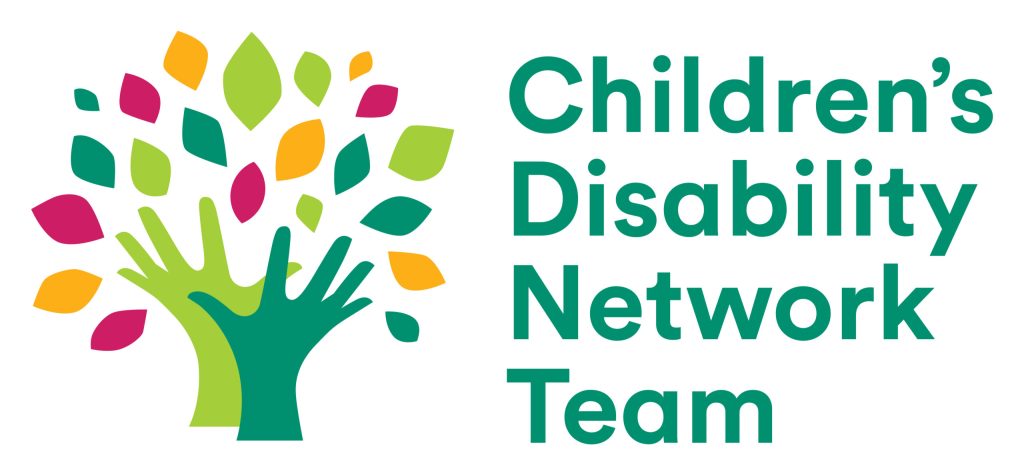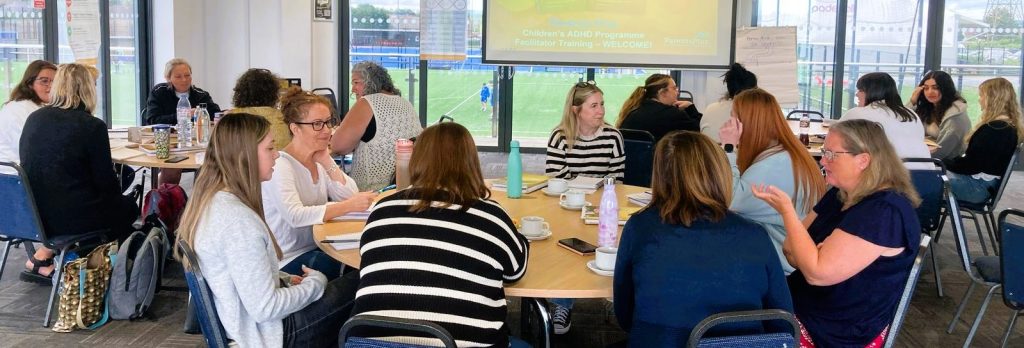
Facilitator Q&A
In this forum, we include questions that have been suggested and answered by Parents Plus facilitators, supervisors and trainers. If you would like to suggest a topic for discussion please submit it here.
-
Does behaviour management work with teenagers with intellectual disability?
Question: “As a professional working in a disability service, I am concerned as to how some parents with a teenager with a intellectual disability apply behaviour management principles, many of whom have attended a Parent Plus Programme. One such example is where a parent of a teen with intellectual disabilities who is non verbal is being encouraged to ignore negative behaviour and to find opportunities to praise and encourage positive behaviour. While this is sound advice it can cause problems when the child with intellectual disabilities who is non verbal is using their behaviour as a means of communicating when something is wrong with them, when they may have a sensory overload etc.. I feel the Parent Plus Programme is an excellent source of support for families and I am just wondering if you have any particular adaptation of the programmes designed for families where there is a child / teen with intellectual disabilities?”
Answer: We encourage facilitators to adapt the Parents Plus Programmes to the needs of the families they are working with, and this is certainly the case in disability settings where families need some more targeted support. The example you give (of a parent ignoring the behaviour of a non-verbal teenager), however, strikes me as a misunderstanding of the principles of the Parents Plus Programmes and this parent would need more specific support in applying them. The principle of ‘tuning in’ and ‘listening’ to your child’s needs is a primary one in Parents Plus and key before choosing a behavioural plan of action.
In a Parents Plus group it would be very important to support the parent to first understand what underpins her son’s behaviour and what he might be trying to to communicate, before she makes a plan. In addition, prevention is always emphasised in Parents Plus. For example, if the boy is suffering from sensory overload, then changing the environment or his routine is key to preventing the problem behaivour. Once the child’s communication is understood then sometimes the praise-ignore principle might be appropriate. For example, if he is using an anti-social way of communicating his needs then it might be important to reduce the attention this behaviour is getting and to increase the attention a more pro-social communication receives.The main point of the praise-ignore principle is to help parents reduce the ineffective negative attention they provide to problem behaviours and to respond in calmer, warmer and more encouraging ways.
Of course, applying these skills when you have a child with special needs often does require special support and attending a Parents Plus group in a community or universal setting may not be enough to achieve this. This is why we often recommend that disability settings like yourself run the Parents Plus Programmes in more intensive ways for these families ( including individual sessions and plenty of time to sort out individual plans). We also recognise there are many additional elements that need to be added to a Parents Plus Programme in disability setting, such as helping parents manage the different track to independence for their child, as well as the specific challenges presented by the individual disability itself (and we encourage professionals to add these in). I hope these comments are useful to you and I encourage you to attend a training to deliver the programme in your setting.
We also offer special disability network meetings for trained Parents Plus facilitators running groups in disability settings and we encourage facilitators to develop and share relevant materials The next meeting is on the 11th June in Dublin.
John Sharry, Parents Plus Co-Founder
-
Parents Plus Accredited Facilitators Survey
We have designed a short survey for PP Accredited Facilitators to help us get an update on where you are with running the Parents Plus programmes in your agency. Our goal is to consult with experienced PP facilitators, so that your ideas and feedback can help shape the work of Parents Plus.
You can complete the short survey here.
If you are accredited with Parents Plus, we really appreciate you taking the time to complete this survey. Thank you.
-
Child Protection and Welfare issues when running a group
Question:
“In the group this week a mother became very upset and shared that she shouts at her children regularly and they appear frightened by her extreme emotion. She feels that this could have long-term effects on them and asked if we (the facilitators) thought they were being emotionally abused by her”.Answer:
When running Parents Plus groups, facilitators will often have to deal with situations where a parent makes a disclosure around Child Protection and Welfare issues. In the group setting these are challenging scenarios to deal with but if managed sensitively with the parent and the group they can provide learning and development for all. In this scenario, the facilitators will need to address a number of issues. Firstly, they will need to respond to and acknowledge this mother’s distress around what is happening at home. The fact that she is attending a Parents Plus group means that she is already committed to finding positive ways to handle her parenting challenges and her own responses to her children. Facilitators should acknowledge this and set the conversation they have with her in a strengths-based direction. For example a constructive response might be:Facilitator: “It sounds like this is very distressing for your children and yourself.” [Express support]
“I also understand your concern about the possible long term effects on your children” [Appreciate positive intention]
“As you already know this course recommends many positive parenting and discipline strategies in place of negative strategies such as, shouting. From what you have said you want to change your responses and you are here to find ways that you can positively manage the children’s behaviour and your own reactions, would that be right?” [Correction and goal suggestion]
The aim for the facilitator is to try to engage with the mother in a way that feels supportive to her while also handling the child protection concerns raised. A good way to manage this would be to offer this mother a follow-up conversation at the end of the group to discuss further with her the detail involved and to give clarity around what constitutes emotional abuse and what the service policy is when a child protection concern is raised. For example, “Let’s talk at the end of the group today, we can discuss the problem further to see what other supports you might need to address this.”
However, it may also be useful for the group to think about their own responses, so the facilitator may decide to use this opportunity to draw out some ideas from this parent and from the group on how to change their responses and move away from shouting or other negative strategies.
If the facilitator remains concerned about the welfare of the child/children it is a good idea to seek consultation with another person about how best to proceed. Discuss the issue first with your co-facilitator, but also consider contacting your supervisor or the designated liaison person you have identified above. It is generally best to consult and formulate a plan. Best practice would be to inform the parent of the need to make an onward referral, unless doing so is likely to endanger the child.
The big challenge here is that this mother may drop out of the group if she feels the facilitator is ‘reporting’ her to Social Work services. It can be helpful here to be explicit around your goal of wanting her to continue attending the group so that what she learns in the programme can provide her with the skills and an opportunity for a turning point, where she commits to using the positive parenting and discipline strategies, learns ways to manage her own stress and emotional responses and turns away from the angry responses she has described.
When delivering a Parents Plus group you are doing so under the remit of the child protection policy of your agency. It is therefore important that you are aware of the child protection policy that applies in your context (e.g. a school) and of having identified a designated person or supervisor within your agency, with whom you can consult on challenging issues. Within the parent group, child protection is addressed in a few ways. At the outset, it is important for facilitators to set up the group rules with participants during the first session and give the position on child protection and welfare at that point (see the Introduction in the Parent Booklet). Specifically, draw parents’ attention to the impact child protection and welfare concerns has on confidentiality and that in line with group facilitator’s responsibilities under Child Protection Policy there is a limit to group confidentiality in this regard. During the group, facilitators have a responsibility to constructively intervene in the group when child protection concerns arise. As described in the example above, strengths-based principles are useful in these cases. Your goal is to first support the parent and affirm what they are doing right before offering some guidance.
Eileen Brosnan, Senior Parents Plus Trainer
-
Peer Learning – Engaging Parents from the Traveller Community
As part of a roll-out of the Parents Plus Children’s Programmes with a cluster of ten primary schools and community services in Ballyfermot, Home School Liaison Teacher Anne Marie McGovern, facilitated groups with Traveller Parents and describes her experience here. Her account contains a number of practical tips for engaging and including parents who might be marginalised from mainstream services.
-
Can parents be charged to attend a Parents Plus Group?
Facilitator Best Practice Question:
“Can parents be charged to attend a Parents Plus Group? We work in a small community service and have expenses when we run the Parents Plus Groups such as venue hire, and refreshments. Do you recommend that we charge parents a small fee to cover these?”Answer: “One of the strengths of the Parents Plus Programmes is that they are offered for free or low cost throughout the country. This reduces the barriers for parents to attend and makes the programmes more universal and accessible. Of course delivering free parenting courses requires the work to be supported by community and state services in terms of paying the salary of the professionals facilitators, the cost of the materials as well as other venue costs. When budget is an issue there a number of practical solutions that can help such as the following 1) You can consider co-running the programme with another local agency who might have a staff member available to co-facilitate and/ or access to other resources such as a free venue. 2) It is also OK to ask parents to pay a small feel to attend the group such as paying ten euro for the cost of the Parent Booklet or towards the venue hire. Sometimes asking for a small fee can increase their commitment to the course ( e.g. if they have purchased the booklet they are more likely to use the material and to attend the course) 3) You can also ask parents to contribute in kind to the group. For example, you can ask them to take turns bringing in tea/coffee and biscuits or other items. Getting them involved in supporting the group in this way can increase their commitment and ownership. 4) Parents Plus also have a sponsorship scheme for agencies ( to cover programme materials, training and supervision) who are actively delivering parenting groups in their area. Some agencies and professionals have to charge higher fees to parents to cover costs in contexts such as private practice or agencies not funded through state bodies. For private practice delivery, Parents Plus require that the facilitators are fully accredited in running the Parents Plus Programme they are delivering, that they are registered with their professional body and have independent professional insurance”.
John Sharry, CEO Parents Plus







